第3章 CHAPTER II.(1)
Scarcely had the old man gone when a general conversation began.
"There's a little Old Testament father for you," said the clerk.
"He is a Domostroy,"* said the lady. "What savage ideas about a woman and marriage!"*The Domostroy is a matrimonial code of the days of Ivan the Terrible.
"Yes, gentlemen," said the lawyer, "we are still a long way from the European ideas upon marriage. First, the rights of woman, then free marriage, then divorce, as a question not yet solved.". . .
"The main thing, and the thing which such people as he do not understand," rejoined the lady, "is that only love consecrates marriage, and that the real marriage is that which is consecrated by love."The clerk listened and smiled, with the air of one accustomed to store in his memory all intelligent conversation that he hears, in order to make use of it afterwards.
"But what is this love that consecrates marriage?" said, suddenly, the voice of the nervous and taciturn gentleman, who, unnoticed by us, had approached.
He was standing with his hand on the seat, and evidently agitated. His face was red, a vein in his forehead was swollen, and the muscles of his cheeks quivered.
"What is this love that consecrates marriage?" he repeated.
"What love?" said the lady. "The ordinary love of husband and wife.""And how, then, can ordinary love consecrate marriage?" continued the nervous gentleman, still excited, and with a displeased air.
He seemed to wish to say something disagreeable to the lady. She felt it, and began to grow agitated.
"How? Why, very simply," said she.
The nervous gentleman seized the word as it left her lips.
"No, not simply."
"Madam says," interceded the lawyer indicating his companion, "that marriage should be first the result of an attachment, of a love, if you will, and that, when love exists, and in that case only, marriage represents something sacred. But every marriage which is not based on a natural attachment, on love, has in it nothing that is morally obligatory. Is not that the idea that you intended to convey?" he asked the lady.
The lady, with a nod of her head, expressed her approval of this translation of her thoughts.
"Then," resumed the lawyer, continuing his remarks.
But the nervous gentleman, evidently scarcely able to contain himself, without allowing the lawyer to finish, asked:
"Yes, sir. But what are we to understand by this love that alone consecrates marriage?""Everybody knows what love is," said the lady.
"But I don't know, and I should like to know how you define it.""How? It is very simple," said the lady.
And she seemed thoughtful, and then said:
"Love . . . love . . . is a preference for one man or one woman to the exclusion of all others. . . .""A preference for how long? . . . For a month, two days, or half an hour?" said the nervous gentleman, with special irritation.
"No, permit me, you evidently are not talking of the same thing.""Yes, I am talking absolutely of the same thing. Of the preference for one man or one woman to the exclusion of all others. But I ask: a preference for how long?""For how long? For a long time, for a life-time sometimes.""But that happens only in novels. In life, never. In life this preference for one to the exclusion of all others lasts in rare cases several years, oftener several months, or even weeks, days, hours. . . .""Oh, sir. Oh, no, no, permit me," said all three of us at the same time.
The clerk himself uttered a monosyllable of disapproval.
"Yes, I know," he said, shouting louder than all of us; "you are talking of what is believed to exist, and I am talking of what is. Every man feels what you call love toward each pretty woman he sees, and very little toward his wife. That is the origin of the proverb,--and it is a true one,--'Another's wife is a white swan, and ours is bitter wormwood."'